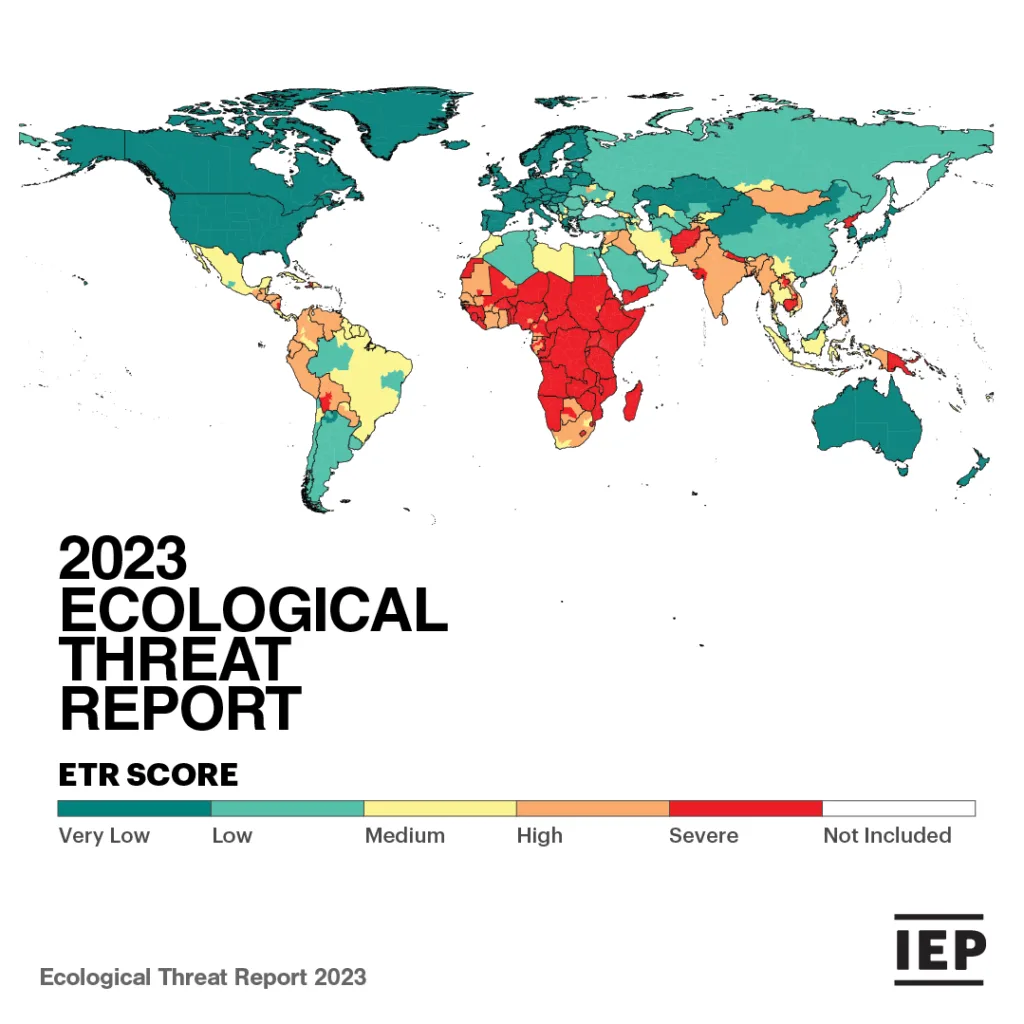Institute for Economics & Peace (IEP) released Ecological Threat Report (ETR) 2023
The report analyzes ecological threats, resilience, and peace. It covers 3,594 sub-national areas that account for 99.99% of the world’s population. The ETR assesses threats relating to: Food insecurity, Water risk, Natural disasters, Demographic pressure.
ETR focuses on four categories of threat that are directly related to drivers of conflict. These include
- Food Insecurity: 42 countries facing severe food insecurity and more than 65% of population not able to afford food in past year.
- Natural Disasters: High chance that devastating natural disaster will impact over 5% of population.
- Demographic Pressure: More than 70% increase in population by 2050, increasing strain on public resources and societal resilience.
- Water Risk: No access to clean drinking water to more than 20% of population.
Relationship between Ecological Threats (ET) and Conflict
- Shifts in ETR scores are associated with increased risk of conflict.
♦ Shift in indicator score of 25% for food insecurity increases the risk of conflict by 36%. - Large scale natural hazards restrict access to resources and markets resulting in food insecurity and water risk which further fuels the conflicts.
- ET influence conflict in regions with lower levels of peacefulness, high climatic variability, high poverty, and weak governance such as Sahel.
Key Recommendations
- Building resilience with functioning institutions and infrastructure.
- Empowering local communities for higher level of sustainability.
- Innovative programs to build water resilience like sand dams, engineered wetlands etc.
- Farmer Managed Natural Regeneration for reclaiming degraded land

